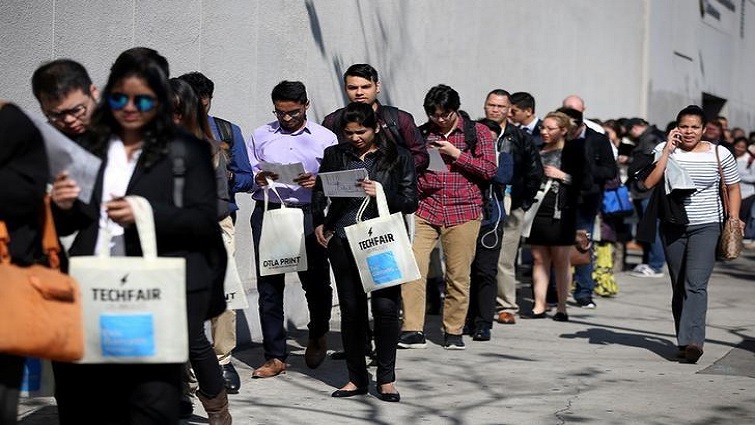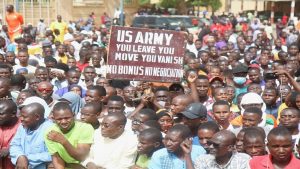The United States unemployment rate eased to 13.3% from 14.7% in May as the impact of the coronavirus began to ease despite more than 42 million people becoming newly unemployed in just the last 11 weeks.
That is the surprising news as the Labour Department released its monthly jobs report with analysts forecasting a rate closer to 20% unemployment.
Despite the positive sentiment, data shows that African Americans who are being disproportionately affected by the COVID-19 pandemic while further roiled by police brutality in the wake of George Floyd’s death, are also the worst affected demographic when it comes to layoffs.
In the video below, demonstrations continue across the United States:
It is a gut-punch to a nation already on its knees, amidst a pandemic and the heavy toll it’s inflicted – the death of a black man at police hands that has spurred a nation into protest and unemployment data that hangs as an over-arching dark cloud.
John Quelch of the Miami Business says, “There’s no doubt that the economy is really going to suffer, not just in a short term, but with the amount of fiscal stimulus and borrowing that the government has to undertake to stabilize the situation, this overhang of debt is going to last for many decades to come.”
While layoffs remained high, they eased off in the month of May as businesses and economies around the country began phased re-openings following wholesale shutdowns in March over a raging pandemic.
Federal Reserve Chair Jerome Powell says, “Avoidable household and business insolvencies can weigh on growth for years to come. Long stretches of unemployment can damage or end workers’ careers as their skills lose value and professional networks dry up and leave families in greater debt.”
“The loss of thousands of small and medium-sized businesses across the country would destroy the life’s work and family legacy of many businesses and community leaders and limit the strength of the recovery when it comes. These businesses are a principal source of job creation, something we will need sorely as people seek to return to work.”
And while there’s a growing view among economists that the country had likely hit the bottom for unemployment, recovery will be slow while black people continue to bear the brunt from COVID-19, it’s economic fallout and police brutality – a point made by Civil Rights Leader Al Sharpton at a memorial for George Floyd in Minneapolis Thursday.
“George Floyd’s story has been the story of black folks, because ever since 401 years ago, the reason we could never be who we wanted and dreamed of being is you kept your knee on our neck. We were smarter than the underfunded schools you put us in, but you had your knee on our neck. We could run corporations and not hustle in the street, but you had your knee on our neck.”
“We had creative skills. We could do whatever anybody else could do, but we could not get your knee off our neck. What happened to Floyd happens every day in this country, in education and health services and in every area of American life. It is time for us to stand up in George’s name and say get your knee off our necks.”
African American unemployment is at least 2% points higher than the official rate nationwide.
In a report, the Economic Policy Institute, a non-partisan think tank in Washington, said this demographic historically suffered from higher unemployment rates, lower wages, lower incomes, much less savings to fall back on as well as significantly higher poverty rates than their white counterparts.
SABC’s US Correspondent Sherwin Bryce-Pease reports:






